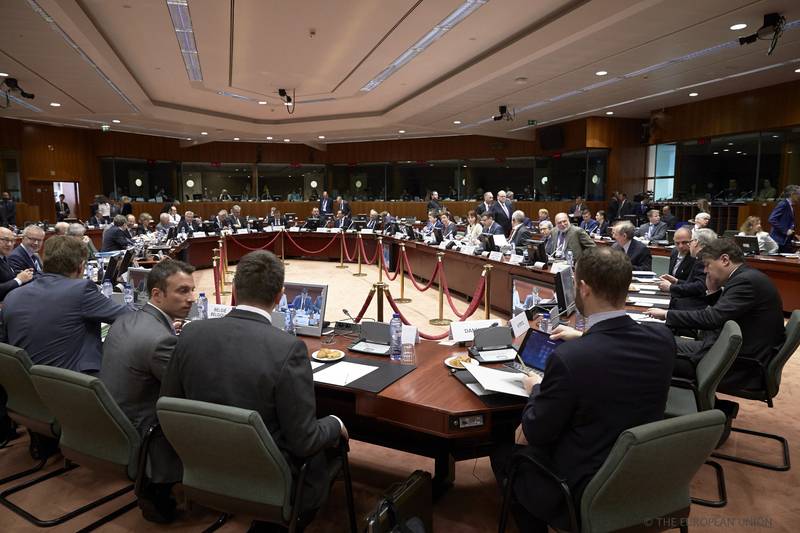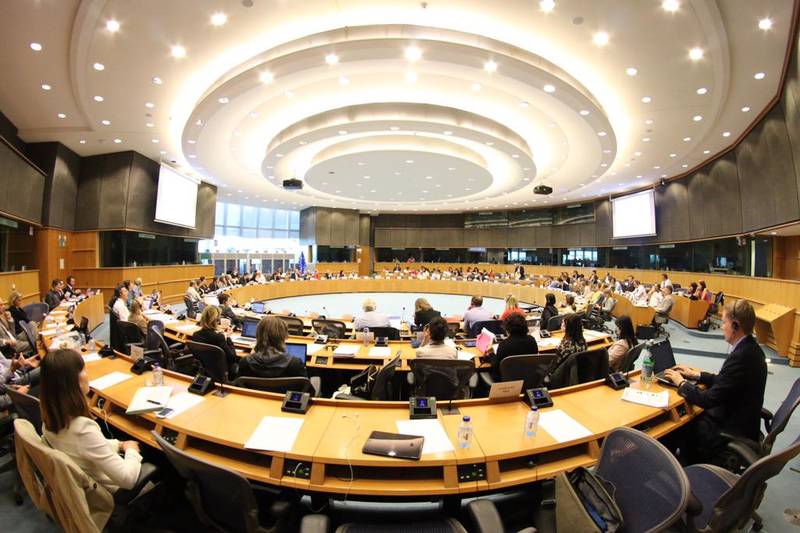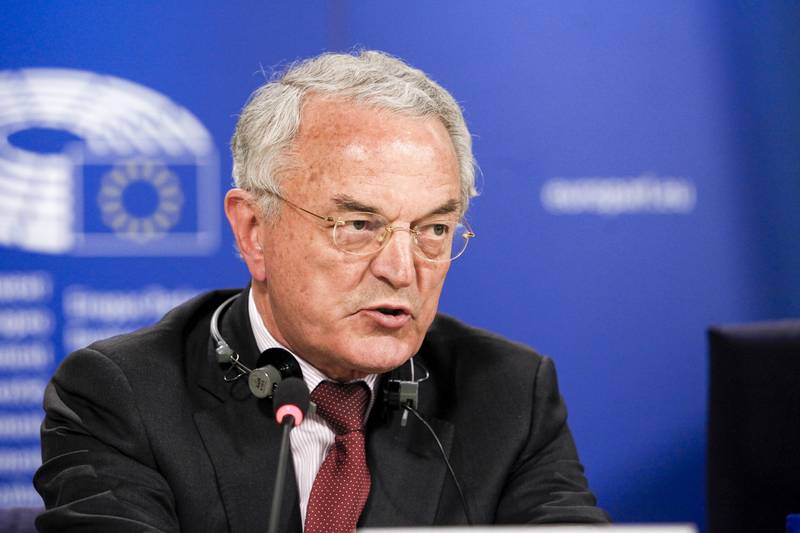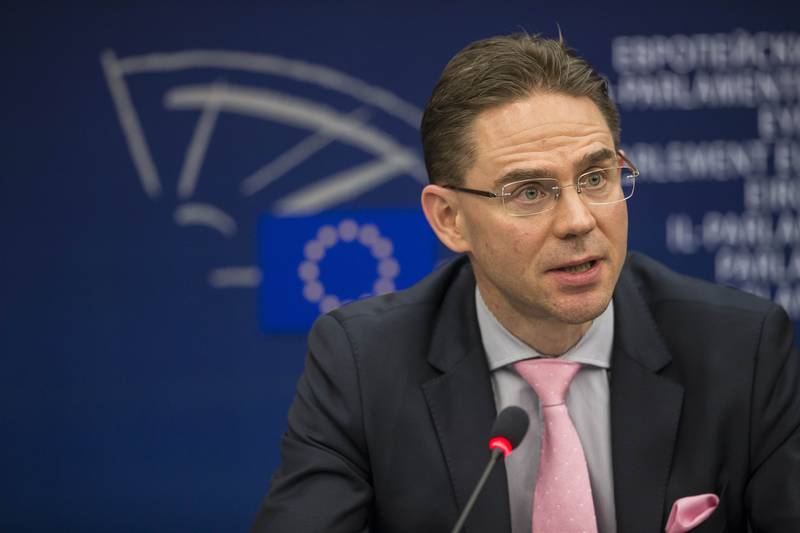EIB Believes the European Parliament Does Not Understand EFSI
Adelina Marini, May 26, 2015
 Despite the good will of all sides the trilateral negotiations on Juncker's investment plan are stuck on key points. So far, there have been four rounds of the negotiations between the European Parliament, the Commission and the Council but outcome is limited. European Investment Bank (EIB) President Werner Hoyer made a comprehensive summary of the negotiations during the public debate on the issue in the May meeting of the Council of EU finance ministers (ECOFIN) on 11 May. The problematic points are several. He started with additionality. This is a term the European Commission uses in its draft regulation for the support of operations of the investment fund that are related to market failure or bad investments. In other words, operations that would normally not be done with the bank's traditional instruments without the fund's assistance.
Despite the good will of all sides the trilateral negotiations on Juncker's investment plan are stuck on key points. So far, there have been four rounds of the negotiations between the European Parliament, the Commission and the Council but outcome is limited. European Investment Bank (EIB) President Werner Hoyer made a comprehensive summary of the negotiations during the public debate on the issue in the May meeting of the Council of EU finance ministers (ECOFIN) on 11 May. The problematic points are several. He started with additionality. This is a term the European Commission uses in its draft regulation for the support of operations of the investment fund that are related to market failure or bad investments. In other words, operations that would normally not be done with the bank's traditional instruments without the fund's assistance.
Additionality was an issue during the previous debate in the Council as well as during the debate in the economic committee of the European Parliament. According to Mr Hoyer, there is progress on this topic but it is still unclear how the negotiations will end. He added that additionality is related also to undertaking actions on high-risk portfolios which can lead to big impact for the real economy. He assessed the European Parliament's approach on this issue as constructive. Malta Finance Minister Edward Scicluna recommended to make a difference between bad projects and high risk projects.
He explained that something can be of high risk for the market because of market failure but in the same time it could be acceptable at national level. And something which could be of high risk at national level could be assessed by EIB as appropriate. And also there can be some very good projects with very high risk which the bank could describe as high risk on the basis of its mandate but which at EU level could be acceptable. The Presidency rejected this thesis saying that the criteria should be only whether the projects are good or not.
The second issue there are differences on in the trialogue is the fund's governance. In the very beginning of the public debate the finance minister of Latvia, Janis Reirs, said that the funding of the fund (EFSI) and its governance were the toughest issues. Werner Hoyer explained that all operations of the fund will be included in the EIB balance sheet and the risk will be shared for every operation. Therefore he insisted the process of selection of the projects to comply with the bank's usual procedures. EIB should have the last say because this is stipulated in the EU Treaty, he underscored.
Another issue on which there is still no solution is state aid. This is a complicated issue because, according to the current rules the fund is practically providing state aid for the funding of projects. Vice President Jyrki Katainen, who is responsible for the investment plan, said that discussions on this issue were ongoing. He hoped a solution would be found. The issue of the name of one of the key bodies in the investment fund, namely the investment committee, again surfaced at the meeting. The EIB chief, who has insisted since the very beginning the committee to be renamed to a guarantee committee, explained that in every genuine investment fund it is the investment committee that takes the decisions on projects whereas in EFSI decisions are taken by the EIB governing bodies and the decision to use EU guarantees is taken by that committee.
This is precisely why it should be named a guarantee committee. The name confuses investors, Mr Hoyer added and complained that he was receiving messages from them on a daily basis. This time there was no serious discussion on this issue as the few ministers who spoke and mentioned this issue agreed on the change of name.
As a conflicting point emerged, however, Werner Hoyer's statement regarding the accountability of the fund in the European Parliament. "I have the feeling that the European Parliament does not understand very well what EFSI really is because it proposes separate external auditing checks of the fund. It should be understood that EFSI is not an individual legal subject. All projects will be included in the EIB balance sheet and will be a subject of relevant auditing checks. There cannot be a separate account for the EFSI", the German said. Jeroen Dijsselbloem, finance minister of the Netherlands and Eurogroup chief, retorted that as the European budget was involved in the plan the European Parliament may make comments. "We should allow them some influence regarding where money comes from. We cannot tell them 'This is EIB's job'. The European parliament would not allow that. This is not how we will reach a solution", Mr Dijsselbloem argued.
Wolfgang Schaeuble, the German finance minister, agreed but recalled that EFSI would make sense only if the guarantee was worth it. This means that it should not be subjected to voting each year with the annual budgets. It should be set ex-ante in the 7-year financial framework. With this view agreed Italy Finance Minister Pier Carlo Padoan. According to him, this is just a mechanical thing. "If we enter into a system where we approve the funding every year this has two aspects. First is costs for monitoring and the second is costs in terms or reputation. Markets would like to see a mid-term or longer term horizon. This is not about not sharing the responsibility with the EP but for greater efficiency", the Italian minister said.
This position was shared also by his Luxembourg colleague Pierre Gramegna. In the end of the discussion, which lasted a little over than half an hour, President Reirs agreed with Jeroen Dijsselbloem's position that the European Parliament had an important role as a co-legislator. The fourth round of the trialogue was on 18 May. The Latvian presidency wrote on Twitter that a long night was expected. After the negotiations there was no press release which means no progress was achieved. The time is running out for an agreement. The deadline for the draft to be approved is June so that the fund can start functioning in mid-July. For now, the three parties state their will to keep with the deadline but both the Council and the European Parliament insist on their positions. That is why Jyrki Katainen underscored that this regulation was not the end but the beginning of the application of the investment plan and recalled that the most important pillar in that plan was overcoming the hampers for investments which needs the cooperation of all the member states.
 | © European Commission
| © European Commission Jean Arthuis | © European Parliament
Jean Arthuis | © European Parliament Jyrki Katainen | © European Commission
Jyrki Katainen | © European Commission